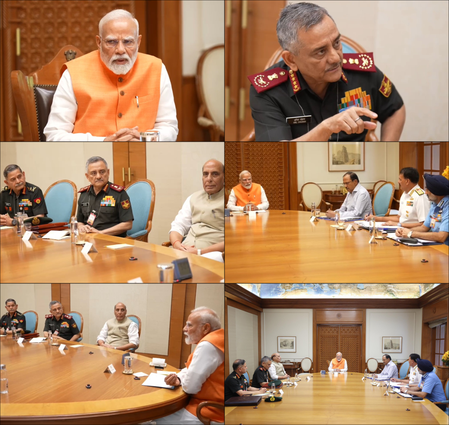New Delhi, April 29: In a high-level emergency meeting following the brutal Pahalgam terror attack that claimed 26 lives, Prime Minister Narendra Modi issued a strong directive to India’s armed forces: deliver a “crushing blow” to terrorism. Reaffirming his unwavering trust in the military’s capabilities, PM Modi granted full operational freedom to decide the “mode, targets, and timing” of India’s retaliation against Pakistan-based terror outfits.
The emergency meeting—described by officials as “extraordinary in urgency and nature”—was attended by Defence Minister Rajnath Singh, NSA Ajit Doval, and the Chiefs of the Army, Navy, and Air Force. The agenda was clear: a comprehensive review of actionable intelligence and strategic planning for dismantling terror infrastructure across the border.
The Prime Minister’s message came in response to the devastating attack in Pahalgam, which targeted innocent civilians, most of them tourists. With Pakistan-based Lashkar-e-Taiba and other groups under intense scrutiny, the government is reportedly finalizing a decisive strategy to target terrorist networks and their sponsors.
India’s military has been placed on high alert along the Line of Control (LoC) and international border. Advanced surveillance through drones, satellites, and electronic intercepts is underway, closely monitoring terror launchpads in Pakistan-occupied Kashmir (PoK).
The Centre has already initiated stern diplomatic measures, including suspending the Indus Waters Treaty and expelling Pakistani nationals on short-term visas. PM Modi has reiterated his vow to pursue every terrorist and their enablers “to the ends of the earth.”
Though specific plans remain classified, the atmosphere in Delhi is charged with determination. As India prepares for a forceful and uncompromising response, the nation stands united, awaiting the next move in what could be a pivotal moment in the country’s fight against terrorism.










